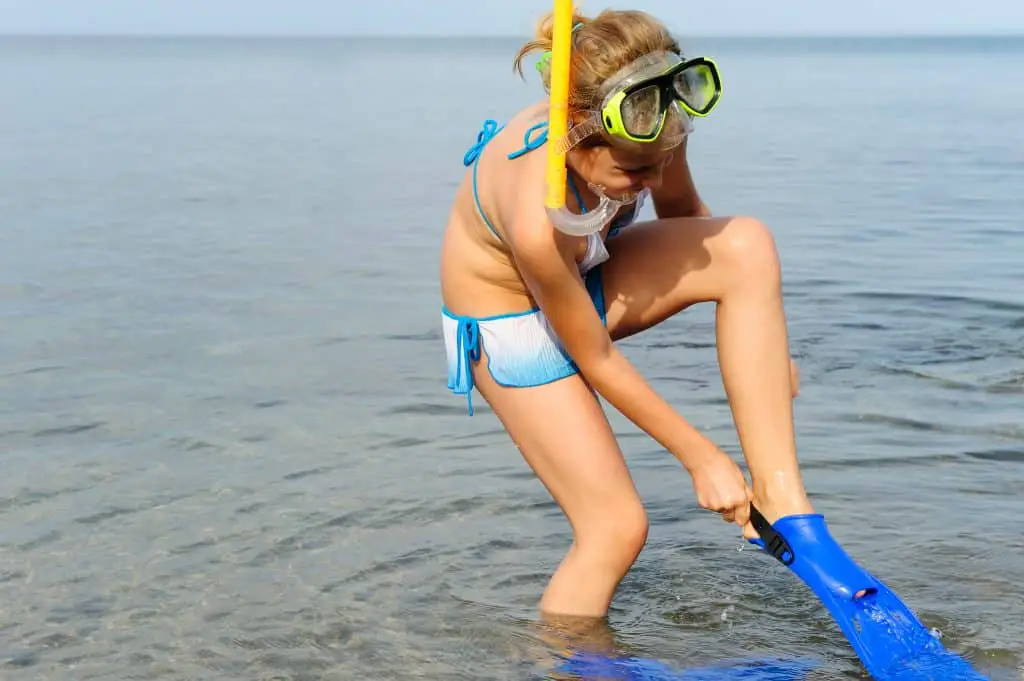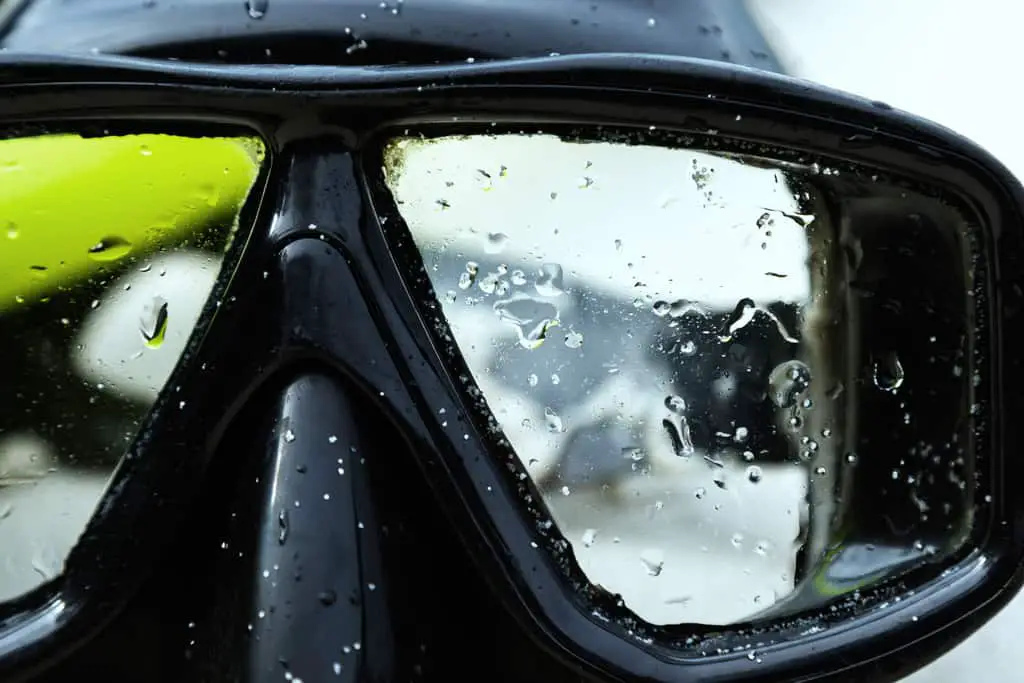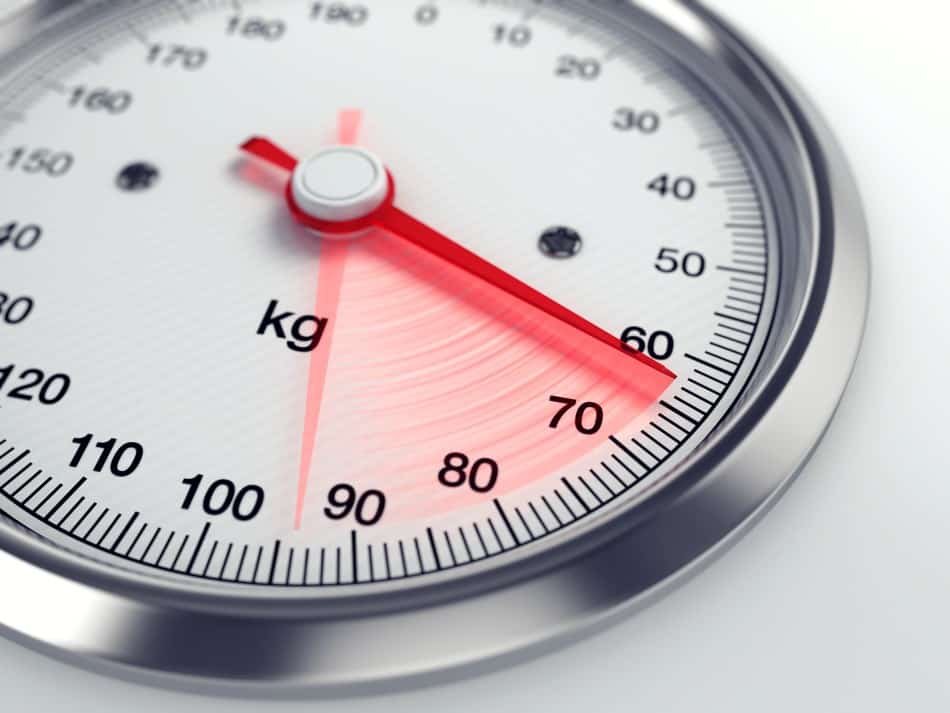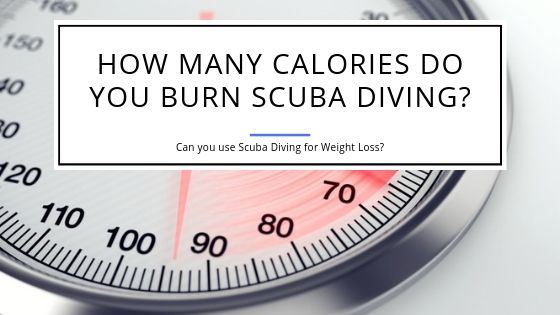How Many Calories do you Burn Scuba Diving?
Scuba diving is a thrilling water activity that is suitable for people of most ages. It’s an amazing way to experience what life is like in the ocean, but more than that, it can also be seen as a form of exercise.
How many calories do you burn scuba diving? Depending on some factors you typically burn between 300 and 600 calories per hour scuba diving. The colder the environment the more calories you burn. Other factors are depth, gender and overall fitness.
Health Requirements for Divers
There aren’t any fixed requirements for divers to be physically fit before they can enter the water. However, being out of shape and having less stamina increases the chances of divers experiencing decompression sickness (joint pain due to the build-up of compressed gases in the body). Many serious divers maintain a healthy diet, but the question still remains, does scuba diving burn calories?
Does Scuba Diving Burn Calories?
Diving for a week can help divers lose several pounds. This does take into consideration that divers may eat big, hearty meals, especially if they’re diving during their vacation.
When you’re diving, you need to control your breathing (tips on scuba breathing techniques) so that you don’t overexert yourself. In fact, many people see scuba diving as a calming activity. So how exactly are you losing weight if you’re lazily floating through the water?
Essentially, the way we burn calories underwater is through a process known as thermoregulation. Our standard body temperature on land is 98 degrees Fahrenheit. Once we’re submerged in the water, we’re exposed to much lower temperatures and our body loses fat 25 times faster in water than on land. Our body seeks to maintain body temperature at 98 degrees underwater. The effort exerted during this process helps us burn calories scuba diving. In fact, our body can expend up to 70% of its daily caloric requirement to maintain a constant body temperature.
Water density is another factor that impacts the amount of energy we use underwater. Water is 800 times denser than air, which means it can absorb our body heat faster. Our body needs to use more energy to make up for the lost heat and our metabolism speeds up, helping us burn calories as we dive.

How Many Calories Can You Burn While Scuba Diving?
The amount of calories you burn per dive varies significantly, based on factors such as temperature, depth and how much effort you put into your dive. Research indicates the following estimates of the number of calories burned during a dive:
- A shore dive burns around 600 calories/hour
- A dive in warm, tropical water burns around 300 calories/hour
The average number of calories burned per dive is generally between 400-700. This is roughly the same as a one-hour jog, but the experience is considerably more enjoyable.
What Factors Influence How Many Calories You Burn While Scuba Diving?
Depth, temperature and physical fitness impact how many calories you burn with each dive.
Depth
The deeper you go in the water, the more the water pressure increases. The body needs to exert more effort to move around as well as to push against the water pressure during the ascent.
- Deeper dives burn more calories than shallow, surface dives.
- Boat dives burn more calories than shore dives.
Temperature
Diving in cold water requires twice as much effort as diving in warm, tropical waters. The more effort you exert, the more calories you are likely to burn.
However, diving in extremely hot and humid regions means that the body requires more effort to adapt to the water temperature. Following the concept of thermoregulation we discussed earlier, adapting to warmer waters also helps divers burn calories.
To help you understand just how many calories the body can burn in cold water, let’s give you a point of reference: in the Arctic, a person needs to consume an average of 6000-9000 calories/day (as opposed to the standard 1500-2000) just to keep their body warm. This also signifies the intense amount of calories they burn in this process. Of course, you’re not diving in the Arctic, but cold water dives will still help you burn a significant number of calories.
Gender
On average, the daily calorie intake is 2000 for men and 1500 for women. Therefore, even if you dive twice in one day, you’re likely to burn around at least 800 calories, which is why even if your food consumption is high, a full week of diving can help you lose a significant amount of weight. Divers may lose around 2-5 pounds after a week of dives, even if they have several full meals a day.
Men have more lean muscle as compared to women and are likely to burn 40% more calories than women under the same dive conditions.
Physical Fitness
The estimated rate of burning calories is around 475 calories/hour of diving at an average body weight of around 150 pounds. People with a higher muscle mass (or body fat) are likely to burn more calories under the same dive conditions as a person with lower muscle mass.
Beginners generally burn more calories than seasoned professionals since they’re likely to flap their arms and exert more effort while breathing in an attempt to get more comfortable in the water.
Regardless of how long you’ve been diving for, swimming against the water current is a full-body workout. Unlike weight-lifting, etc. where only specific parts of the body, such as your arms or legs are doing the hard work, the entire body is active and strengthened during scuba diving.

Calorie-Counting During Your Dive
If you’re diving with the purpose of burning fat, you can keep a calorie-tracking device with yourself. However, most calorie counters don’t take water temperature into consideration, so the values you obtain will be a rough estimate.
Is Scuba Diving Physically Demanding?
Even though you don’t break a sweat while scuba diving, it can be a challenging sport. If you’re a newbie, of course, the first hurdle is regulating your breath to ensure that you can breathe comfortably without running out of the air supply in your oxygen tank.
The second factor is that your entire body is at work to swim against the resistance of the water current. Combine that with the high density of the water, and your body uses up a significant percent of your daily calorie intake to move around.
Is Scuba Diving a Good Workout?
Scuba diving can be a great water sport, whether you’re young and fit, or old and have joint pains. It can also be considered an effective form of exercise for elderly patients who have trouble moving around since the water makes you feel weightless. When the entire body is submerged, the joints (such as the knees) don’t have to support the weight of your upper body and it becomes easier for you to move around.
However, it is important to remember that scuba diving cannot be treated as an alternative for strength training and cardio workouts. It won’t help you burn the same amount of calories you’re aiming to burn if you’re strength training. It also won’t help you build as much lean muscle.
If you’re looking for a light workout that can also double up as a fun activity, scuba diving can definitely be a good option. You’ll burn the same number of calories as an hour’s worth of a jog while enjoying a fantastic view of the fish and corals. Not to mention, you won’t have to worry about sweating or gasping for air.
If you’re really interested in scuba diving for weight loss, let your instructor know beforehand. They will provide you with a calorie counter to keep with you during your dive as well as any other guidelines you may need to follow to get the most out of your dive.

Maintaining Your Diet as You Dive
Diving speeds up your metabolism, which means that you are likely to feel hungrier after your dive. If you’re diving more than once a day, snack on a banana, which is high in potassium or some other nutritional snack to avoid layering your body with unhealthy fats post-workout.
You can also use an online calculator to give you an idea of how much your daily calorie intake should be to balance out what you eat and what you burn during your dive.

